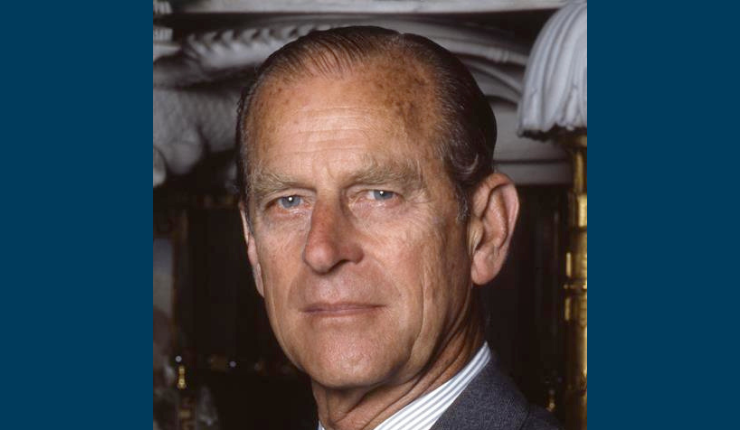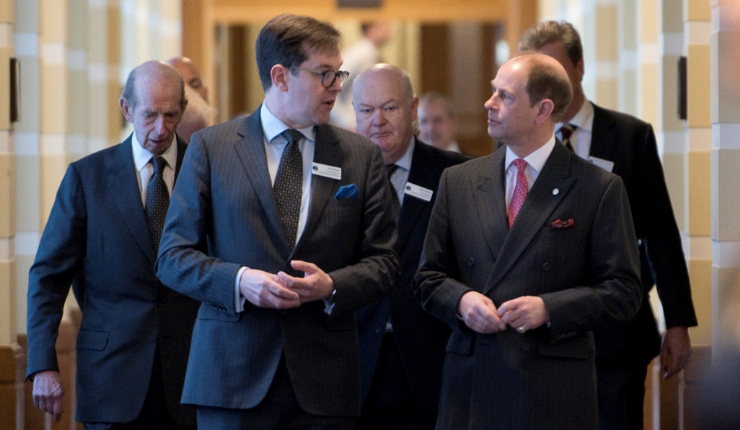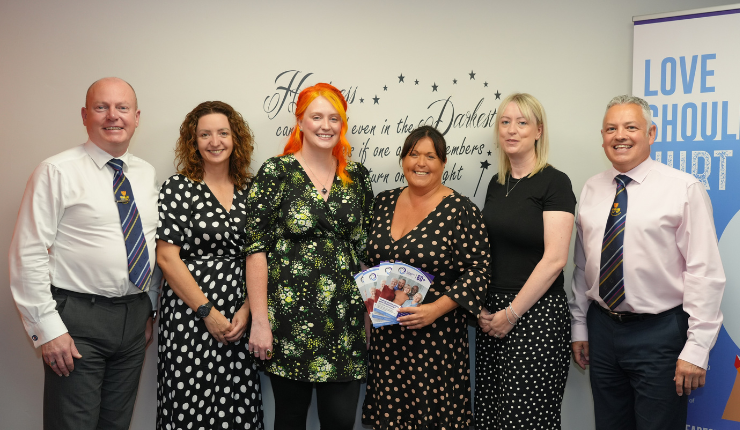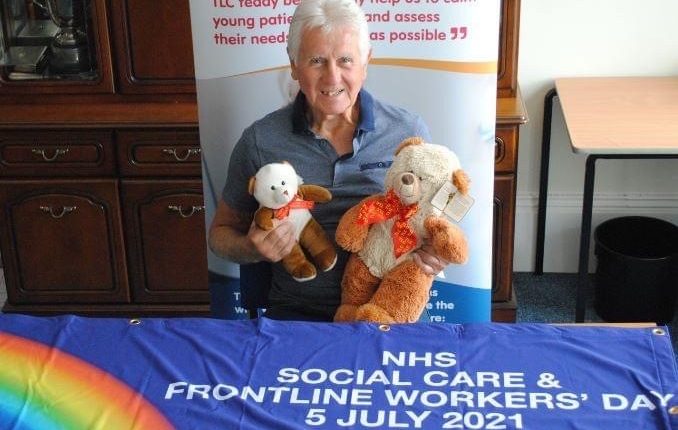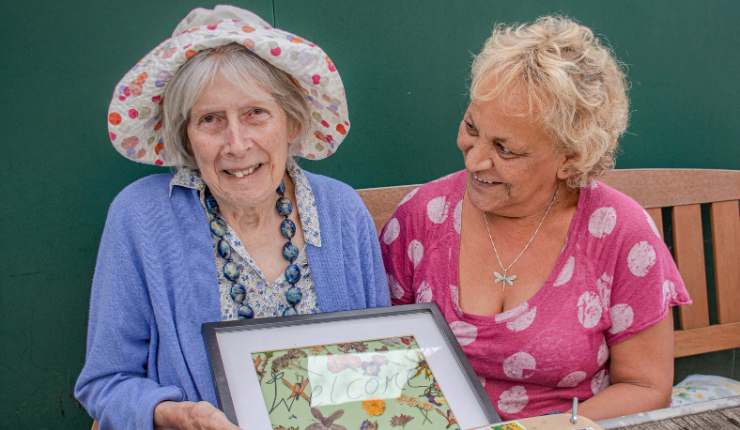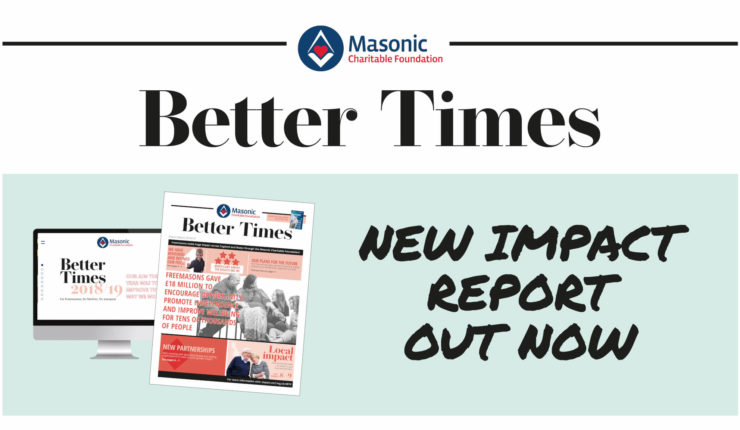Children and Young People, Grants to charities
Changing attitudes with Changing Faces
Anti-Bullying Week 14 – 18 November 2022
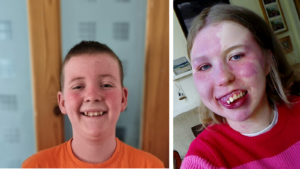
Beneficiaries of Changing Faces, David and Hannah
Organised by the Anti-Bullying Alliance (ABA), Anti-Bullying Week is an annual event which aims to raise awareness of bullying of children and young people, and highlights ways of preventing and responding to it.
The charity Changing Faces is celebrating its 30th anniversary this year and received a grant of £56,981 from the MCF to help improve the confidence and opportunities for young people with a visible difference.
We all remember what it’s like to be a child and wanting to blend into the crowd as much as possible, not drawing attention to your uniqueness. So it’s unfortunately not surprising that children with a visible difference, or any difference at all, can be treated unfairly during their school years and beyond. In fact, in a survey commissioned by Changing Faces last year, one third of children with a visible difference said they received unkind comments relating to their appearance, and one in four of these cases have escalated into some form of bullying.
Our £56,981 grant to Changing Faces is supporting children and young people aged 0-18 and their parents, providing up to 12 one-to-one counselling sessions, and workshops for peer support in difficult periods, like when transitioning from primary to secondary school. With the help of our grant, the charity also practices helpful methods with children and young people like cognitive behavioural therapy (CBT), mindfulness, and other coping mechanisms that can help them overcome issues they may be facing due to their visible difference, and improve mental health.
We spoke to Heather Blake, Chief Executive of Changing Faces, to learn about the charity’s work and its connection to Anti-Bullying Week.
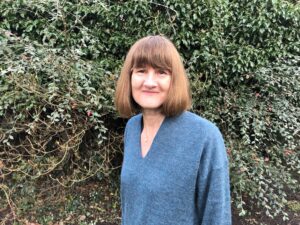
Q: What does Anti-Bullying Week mean to your charity?
A: We’re part of the Anti-Bullying Alliance, and we share similar goals and values; we both want to create a climate in which everyone agrees that bullying is unacceptable. This year’s Anti-Bullying Week theme of ‘reach out’ connects directly with our vision. We want people with a visible difference, no matter their age, to feel able to speak out about the challenges they may have faced, and get the right support.
Q: How have you seen bullying impact your beneficiaries’ mental health and self-esteem?
A: Our research with Childwise found that young people with a visible difference are more likely to experience anxiety in social situations, with two in five of them having been stared at or made to feel uncomfortable because of their appearance.
This of course takes a toll on their mental health and self-esteem growing up. It can take a lot of time and effort to recover the confidence that was lost in childhood, and for many people it isn’t a linear process. Comments and stares in adulthood are just as damaging, setting people back in their self-acceptance journey. We aim to support everyone with a visible difference throughout this, helping them to love themselves for who they are.
Q: What actions do you think need to be taken in schools to prevent harmful bullying?
A: Education professionals have a core role to play in creating inclusive environments that prevent bullying. Bullying often stems from a place of ignorance, so talking about difference at school – and at home – is the first step to promoting acceptance. Our research-based anti-bullying policy guidelines are available for educational institutions that want to ensure they are a welcoming place for all students. We also have a range of classroom and assembly resources to support teachers in promoting acceptance and inclusion.
We need to normalise difference and frame it as something to celebrate. Inclusive books and toys can be a powerful way to do this, so we’ve created a recommendations resource on our website, which contains suggestions from our campaigners and ambassadors. The earlier children learn about difference, the kinder an environment we can create for everyone with a visible difference.
The first few years of primary school were hard. The other children called me names such as ‘cornflakes, scabby, snowflake and flaky’. One boy would keep picking on me, for instance, pointing out the flakes on my jumper in a nasty way. In activities like dance lessons no one would hold my hand. People used to treat me differently until I was so sad, I would not go to school. So, the teachers told my class all about me and my skin condition and let them see and touch my creams. When I came back everyone knew all about me and I felt a lot better about myself.
Q: How can Changing Faces help?
A: Our wellbeing support services, which the MCF has helped fund, includes one-to-one wellbeing support for children and young people, as well as workshops for young people and their families.
Our Support & Information Line is available to anyone over the age of 16 who is struggling with the emotional impact of a visible difference. It is open from 10am – 4pm Monday to Friday on 0300 012 0275. During these calls, we can give people the space to share their concerns and explore the service options that might work best for them. Our wellbeing services also include counselling support, an online community forum and Peer Group Chat, which brings people with a visible difference together to talk about their experiences in a safe environment.
